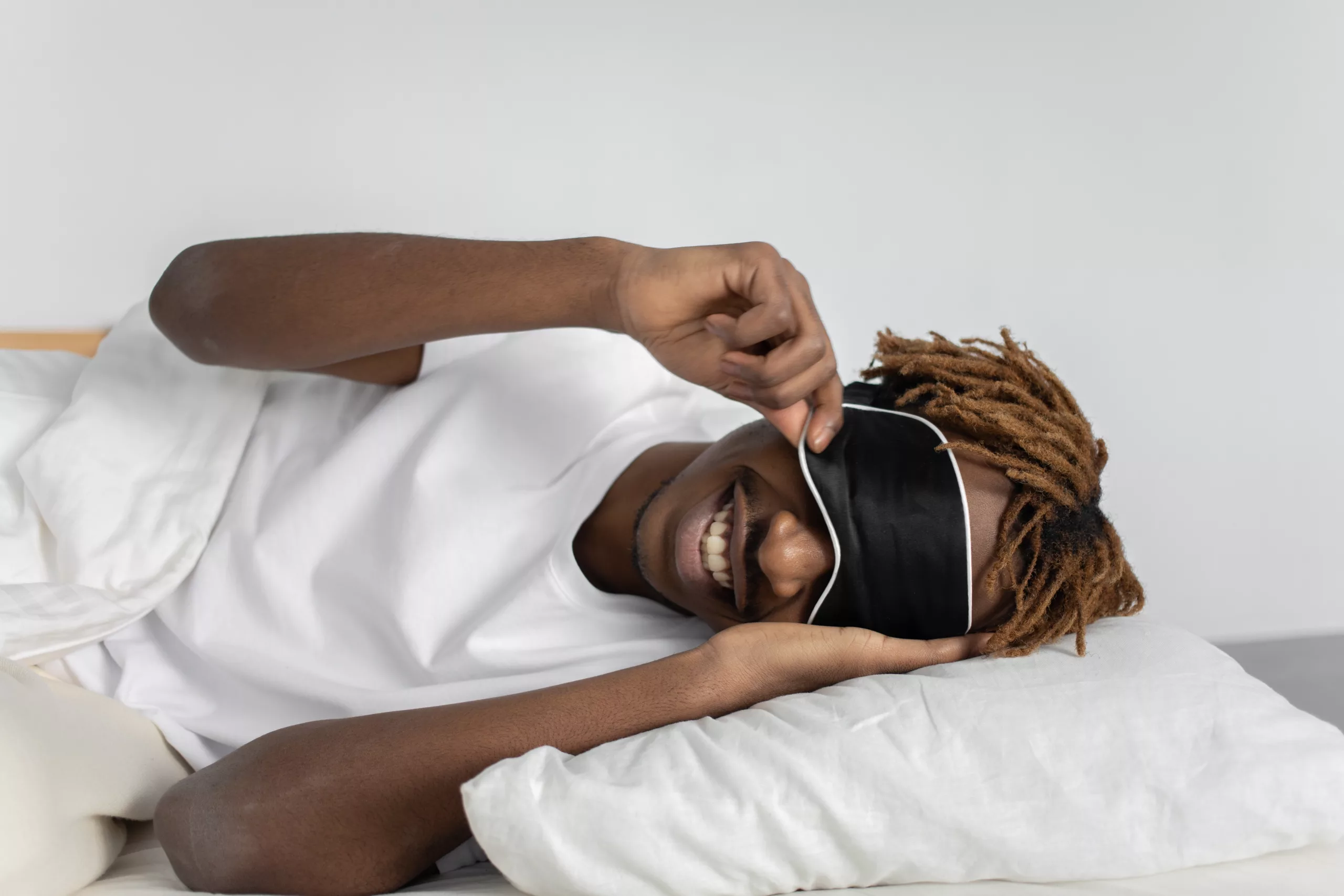Depressant Drugs: Facts and Long-Term Effects
Central Nervous System (CNS) depressants slow down brain activity. For this reason, they are useful in treating anxiety, panic, and sleep disorders. Further, CNS depressant drugs are available over-the-counter (OTC) or a prescription sedative. But, long-term use leads to depressants addiction and severe withdrawal symptoms.
What are CNS Depressant Drugs?
CNS depressant drugs include sedatives, tranquilizers, and hypnotics. They slow brain activity by attaching to neurotransmitters. This slow down leads to side effects such as drowsiness, relaxation, and lower inhibitions.
CNS depressant drugs treat many different disorders, including:
- Insomnia
- Anxiety
- Panic attacks
- Stress
- Sleep disorders
- Pain
- Seizures
Different classes of CNS depressants work differently. But, they all reduce activity and awareness of the CNS. Despite the similarity, there are major differences. Significantly, some are safer and are used more than others. All CNS depressant drugs, either OTC or a prescription sedative, can lead to CNS depressant addiction. So, they should only be used as prescribed.

Over-The-Counter Sleep Aids
OTC sleeping pills use antihistamine to increase drowsiness. Common OTC sleep aids include:
- Sominex
- Sleepinal
- Unisom
Some OTC sleep aids combine an antihistamine with Acetaminophen. Examples include Tylenol PM and Asprin-free Anacin PM. In contrast, Nyquil combines antihistamines with alcohol.
But, the sedating effects of antihistamines can cause feelings of a hangover. Furthermore, long-term use can lead to headaches and forgetfulness. As a result, sleep aids shouldn’t be used regularly.
Alcohol
Alcohol is one of the most used CNS depressant drugs. But, how it affects the brain depends on how much and how fast a person drinks. Because alcohol has positive effects, in the beginning, people forget it’s a CNS depressant.
For example, when a person starts drinking, they feel relaxed and less reserved. These feelings are because of chemical changes to the brain. However, the more a person drinks, the changes in the brain bring negative emotions and responses.
Alcohol can increase anxiety and stress. It also leads to anger, aggression, and depression. Additionally, long-term use leads to depressants addiction and severe withdrawal symptoms.


Barbiturates: A Prescription Sedative
Barbiturates, or downers, are a prescription sedative. It treats anxiety and sleep disorders. Common benzos include:
- Amytal
- Luminal
- Mebaral
- Nembutal
- Seconal
Although barbiturates were considered generally safe, many issues such as addiction and overdose became apparent. These depressant drugs cause a sense of euphoria and relaxation, even in small doses. These feelings encourage dependence in some people.
Because barbiturates offer great benefits for sleep, they were very popular in the 1950s to 1970s. However, the quick rise in addiction and overdose led to them not being commonly used.
Benzodiazepine: A Prescription Sedative
Benzodiazepines, or benzos, is a prescription sedative. They treat anxiety, sleep issues, and stress disorders. Common benzos include:
- Valium
- Xanax
- Ativan
Benzos are effective in treating anxiety and insomnia because of their sedative muscle-relaxing effects. Although benzos are safe for short-term use, long-term or illicit use leads to CNS depressants addiction. Furthermore, severe withdrawal symptoms begin when people stop or lower their use of CNS depressant drugs like benzos.

Sleeping Pills: A Prescription Sedative
These CNS depressant drugs include non-benzodiazepine sleep aids or “z-drugs,” such as:
- Ambien
- Sonata
- Lunesta
Z-drugs are a prescription sedative that specifically treats insomnia and other sleep disorders. These sleeping pills are chemically different than other CNS depressant drugs. For example, they stimulate GABA neurotransmitters differently.
Unlike benzos, z-drugs don’t reduce anxiety. However, they have fewer side effects and a lower risk of addiction. But, long-term use can lead to dependence and addiction.
Opioids: A Prescription Sedative
Opioids are the most commonly used prescription pain medication. Opioids such as Methadone, are also used in the treatment of opioid addiction. Besides prescription opioids like codeine, hydrocodone, and Vicodin, opioids are also illegal street drugs like heroin.
Opioids vary greatly in strength and risk of addiction. But, they are all chemically similar and typically have the same effects. While considered very effective in treating pain, opioids are one of the most dangerous drugs. Every day, 128 Americans die from an opioid overdose. At the same time, hundreds of thousands of people struggle with opioid addiction.
Effects of CNS Depressant drugs
- Relaxation
- Euphoria
- Slower reaction time
- Memory loss
- Lower blood pressure
- Dilated pupils
- Confusion
- Slowed breathing and pulse
- Fatigue and sleepiness
- Problems urinating
- Dizziness
- Slurred speech
- Reduced inhibitions
- Impaired judgment
- Blacking out
Long-Term Effects of Depressants
The long-term effects of depressants include many adverse effects. However, the long-term impact of depressants depends on the type and severity of use. Particularly, chronic users of depressant drugs end up struggling with substance use disorder.
- Chronic fatigue
- Weight gain
- Hypersomnia
- Sexual dysfunction
- Breathing issues
- Sleep issues
- Depression
- Suicidal thoughts
- Dependence
- Addiction
Overdose is another possible side effect of CNS depressant drugs. Excessive use of depressants leads to respiratory depression, seizures, and even death. Above all, CNS depressant drugs should never be used with any other sedating drugs. This includes a prescription sedative, OTC sleep aids, and alcohol.
When combining depressant drugs and stimulants, such as cocaine or Adderall, the risks are more severe. Similarly, the dangers include overdose, respiratory failure, and death are higher.

Signs of Depressants Addiction
The first sign of a depressants addiction is taking without a prescription or other than prescribed. For example, taking more to increase the effects or taking someone else’s medication. Other signs of depressants addiction include:
- Mood swings
- Being secretive
- Abnormal behaviors
- Lacking energy or motivation
- Decreasing social activity
- Withdrawal symptoms
- Recurrence of use when trying to stop
Also, mixing depressant drugs and other drugs is another sign of a depressants addiction. Even though this intensifies the feelings, it also shows that tolerance has begun. However, it leads to severe and life-threatening outcomes.
Withdrawal from Depressant Drugs
Withdrawal from depressant drugs happens when individuals stop using CNS depressants. Because depressant drugs affect brain chemistry, withdrawal symptoms begin suddenly and are severe. For example, withdrawal symptoms begin 12 to 24 hours after the last dose.
Additionally, the symptoms are most severe 24 to 72 after the last dose. After the initial withdrawal period, or acute withdrawal, symptoms begin to fade. However, post-acute withdrawal symptoms may last up to 24 months.

Many people going through withdrawal from depressant drugs may have a rebound effect. This effect is when the original issue being treated comes back even stronger. For example, a person taking Xanax for anxiety often experiences worse anxiety. However, medical detox provides a safe environment that minimizes the symptoms of withdrawal.
- Insomnia
- Restlessness
- Shaking
- Weakness
- Nausea
- Vomiting
- Irritability
- Excessive sweating
- Hallucinations
- Change in perception
- Anxiety
- Panic attacks
- Tremors
- Seizures
- Depression
- Body aches and pains
- Muscle stiffness
- Heart palpitations
- Tension
- Stress
- Memory issues
- Increased blood pressure and pulse
- Hypersensitivity to light and sound
Withdrawal from depressant drugs can be life-threatening. However, the withdrawal risks increase when individuals stop on their own or quit “cold turkey.” Medical detox is the safest way to withdraw from CNS depressant drugs. In medical detox, doctors use medications to ease withdrawal symptoms and start the recovery process.
Treatment for CNS Depressants Addiction
Treatment for CNS depressants addiction begins with medical detox to rid the body of depressants and other drugs. After detox, members generally go to inpatient treatment. But, some choose outpatient treatment.
Addiction typically co-occurs with other mental health disorders such as depression. However, the treatment allows individuals struggling with substance use disorder to address all the issues with certified professionals. Even though inpatient and outpatient treatment offers the same therapy options, inpatient depressants addiction treatment is a more intense approach.
Therapies for CNS Depressants Addiction
Treatment centers such as Sana Lake Recovery Center tailor treatment plans to the individual needs of the member. Additionally, multiple therapies in treatment help members replace negative behaviors with healthier ones. Cognitive-behavioral therapy (CBT) is particularly helpful in CNS depressants addiction.
CBT focuses on changing a member’s thinking, expectations, and behaviors. At the same time, members increase coping skills for various stressors. However, CNS depressant drugs are often misused alongside other medications. So, treatment plans also address polydrug misuse to increase lifelong recovery.
Depressants are Less Dangerous Than Stimulants
There is a debate about whether depressants are less dangerous than stimulants. Depressant drugs slow down the CNS system has dangerous symptoms that were mentioned before. But the symptoms of stimulant use followed by the sudden crash when the “high” wears off has its own risks. Therefore many believe depressants are less dangerous than stimulants.
Although people may not agree if depressants are less dangerous than stimulants, they all agree they are addictive. Depressant drugs and stimulant drugs take over people’s lives and require lifelong treatment for a life of recovery.
Chronic Depressants Addiction Treatment at Sana Lake Recovery Center
If you or a loved one is struggling with depressants addiction, you are not alone. Our caring trained professionals are waiting to show you that recovery is possible. Contact us today, and start your recovery journey.



